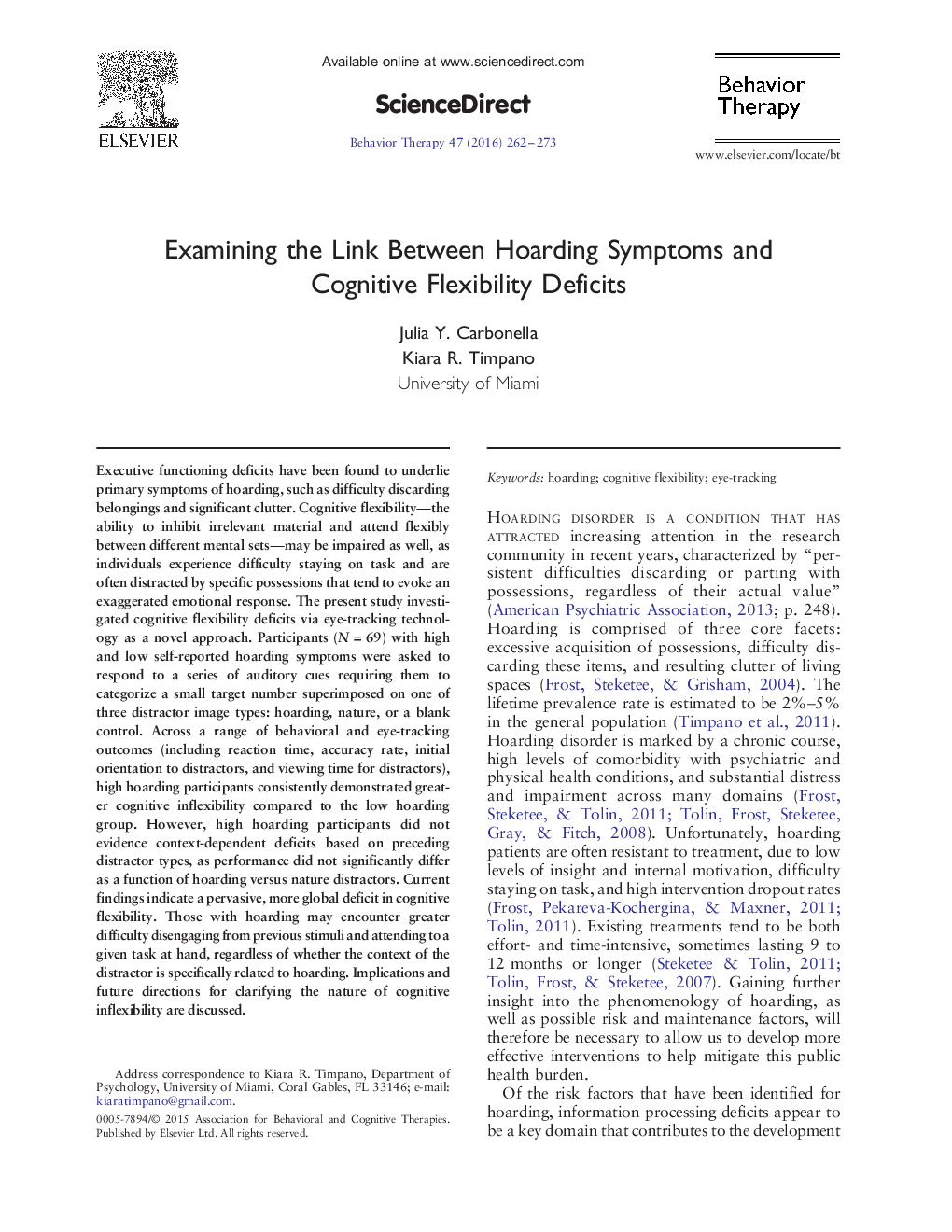| کد مقاله | کد نشریه | سال انتشار | مقاله انگلیسی | نسخه تمام متن |
|---|---|---|---|---|
| 901191 | 915850 | 2016 | 12 صفحه PDF | دانلود رایگان |
• The present study investigated the nature of potential cognitive control deficits in hoarding.
• On a novel eye-tracking task, individuals with high difficulties discarding demonstrated greater cognitive inflexibility.
• Individuals with hoarding tendencies did not exhibit context-dependent deficits for hoarding versus nature distractors.
• Hoarding individuals may have a harder time disengaging and reallocating attention, regardless of context.
Executive functioning deficits have been found to underlie primary symptoms of hoarding, such as difficulty discarding belongings and significant clutter. Cognitive flexibility—the ability to inhibit irrelevant material and attend flexibly between different mental sets—may be impaired as well, as individuals experience difficulty staying on task and are often distracted by specific possessions that tend to evoke an exaggerated emotional response. The present study investigated cognitive flexibility deficits via eye-tracking technology as a novel approach. Participants (N = 69) with high and low self-reported hoarding symptoms were asked to respond to a series of auditory cues requiring them to categorize a small target number superimposed on one of three distractor image types: hoarding, nature, or a blank control. Across a range of behavioral and eye-tracking outcomes (including reaction time, accuracy rate, initial orientation to distractors, and viewing time for distractors), high hoarding participants consistently demonstrated greater cognitive inflexibility compared to the low hoarding group. However, high hoarding participants did not evidence context-dependent deficits based on preceding distractor types, as performance did not significantly differ as a function of hoarding versus nature distractors. Current findings indicate a pervasive, more global deficit in cognitive flexibility. Those with hoarding may encounter greater difficulty disengaging from previous stimuli and attending to a given task at hand, regardless of whether the context of the distractor is specifically related to hoarding. Implications and future directions for clarifying the nature of cognitive inflexibility are discussed.
Journal: Behavior Therapy - Volume 47, Issue 2, March 2016, Pages 262–273
